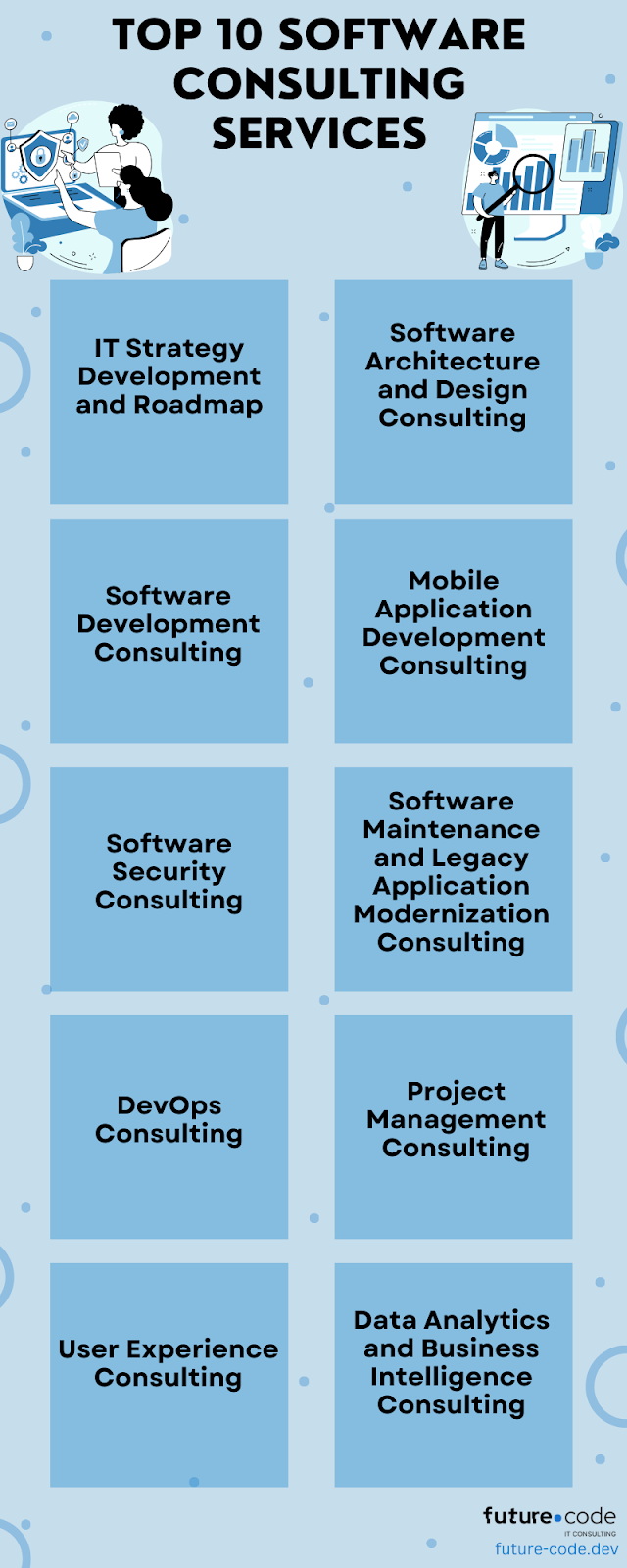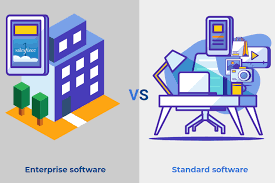Maximizing Business Potential: The Synergy of IT Consulting and Software Development
The Synergy of IT Consulting and Software Development
Information Technology (IT) consulting and software development are two closely intertwined fields that play a crucial role in the success of modern businesses. While IT consulting focuses on advising organizations on how to best utilize technology to meet their objectives, software development involves creating customized solutions to address specific business needs.
Benefits of IT Consulting
IT consulting services help businesses navigate the complex world of technology by providing expert guidance on strategy, implementation, and optimization. Consultants analyze existing systems, identify areas for improvement, and recommend solutions that align with the organization’s goals. By leveraging the expertise of IT consultants, businesses can enhance efficiency, reduce costs, and stay competitive in a rapidly evolving digital landscape.
The Role of Software Development
Software development is essential for creating tailored solutions that meet the unique requirements of a business. Whether developing custom applications, designing databases, or integrating systems, software developers work closely with clients to deliver high-quality products that streamline processes and drive innovation. Through agile methodologies and continuous feedback loops, software development teams ensure that the final product meets or exceeds expectations.
The Intersection of IT Consulting and Software Development
When IT consulting and software development collaborate effectively, businesses can achieve optimal results. Consultants provide strategic insights into how technology can support organizational objectives, while software developers bring these concepts to life through coding and programming expertise. This synergy ensures that technology solutions are not only aligned with business goals but also technically robust and user-friendly.
Conclusion
In today’s digital age, the partnership between IT consulting and software development is more important than ever. By harnessing the collective strengths of these two disciplines, businesses can unlock new opportunities for growth, efficiency, and innovation. Whether seeking advice on technology strategy or building custom software applications, organizations can benefit greatly from leveraging the expertise of both IT consultants and software developers.
8 Essential Tips for Successful IT Consulting in Software Development
- Understand the client’s business needs and goals thoroughly.
- Communicate clearly and regularly with the client to ensure alignment.
- Follow best practices for software development to ensure quality and efficiency.
- Stay updated on the latest technologies and trends in IT consulting.
- Collaborate closely with the client’s team to foster a productive working relationship.
- Provide regular updates and progress reports to keep the client informed.
- Test software thoroughly to identify and fix any issues before deployment.
- Offer training and support to help the client make the most of the software solution.
Understand the client’s business needs and goals thoroughly.
To ensure the success of IT consulting and software development projects, it is essential to thoroughly understand the client’s business needs and goals. By taking the time to delve into the intricacies of the client’s operations, challenges, and objectives, consultants and developers can tailor their solutions to meet specific requirements effectively. This deep understanding not only fosters a more collaborative and productive working relationship but also ensures that the final technology solutions align seamlessly with the client’s overarching business strategy.
Communicate clearly and regularly with the client to ensure alignment.
Effective communication is paramount in the realm of IT consulting and software development. By maintaining clear and regular communication with the client throughout the project lifecycle, alignment between all parties can be ensured. This proactive approach allows for a better understanding of client requirements, expectations, and feedback, ultimately leading to the successful delivery of tailored solutions that meet the client’s needs. Clear and consistent communication fosters transparency, builds trust, and paves the way for a collaborative partnership that drives project success.
Follow best practices for software development to ensure quality and efficiency.
Following best practices for software development is essential to ensure the quality and efficiency of IT consulting projects. By adhering to established standards and methodologies, such as code reviews, automated testing, and version control, developers can produce reliable and maintainable software solutions. Embracing best practices not only enhances the overall quality of the end product but also streamlines the development process, leading to increased productivity and successful project outcomes.
Stay updated on the latest technologies and trends in IT consulting.
Staying updated on the latest technologies and trends in IT consulting is essential for professionals in the field to remain competitive and provide valuable insights to their clients. By continuously learning about emerging technologies, best practices, and industry developments, IT consultants can offer innovative solutions that address the evolving needs of businesses. Keeping abreast of trends also allows consultants to adapt their strategies, stay ahead of the curve, and deliver cutting-edge software development services that drive success for their clients.
Collaborate closely with the client’s team to foster a productive working relationship.
To maximize the effectiveness of IT consulting and software development projects, it is crucial to collaborate closely with the client’s team. By fostering a productive working relationship, consultants and developers can gain a deeper understanding of the client’s goals, requirements, and challenges. This collaboration allows for better communication, alignment of expectations, and ensures that the final technology solutions meet the specific needs of the business. Working hand in hand with the client’s team promotes transparency, trust, and ultimately leads to successful project outcomes.
Provide regular updates and progress reports to keep the client informed.
To ensure a successful collaboration between IT consulting and software development, it is crucial to provide regular updates and progress reports to keep the client informed. By maintaining open communication channels and sharing timely information on project milestones, challenges, and achievements, clients can stay engaged and have visibility into the development process. This transparency not only builds trust but also allows for adjustments to be made promptly, ensuring that the final product meets the client’s expectations and business requirements.
Test software thoroughly to identify and fix any issues before deployment.
To ensure the success of IT consulting software development projects, it is crucial to thoroughly test the software before deployment. Testing allows for the identification and resolution of any issues or bugs that could potentially impact the functionality or security of the software. By conducting comprehensive testing procedures, including unit testing, integration testing, and user acceptance testing, developers can ensure that the final product meets quality standards and performs as intended. This proactive approach not only enhances the overall reliability of the software but also minimizes risks associated with post-deployment issues, ultimately leading to a smoother implementation process and improved user satisfaction.
Offer training and support to help the client make the most of the software solution.
By offering comprehensive training and ongoing support, IT consulting firms can empower their clients to maximize the benefits of the software solution. Training sessions provide users with the necessary knowledge and skills to effectively utilize the software, increasing efficiency and productivity within the organization. Additionally, continuous support ensures that clients have access to assistance whenever they encounter challenges or require further guidance, fostering a strong partnership between the consulting firm and the client for long-term success.










